Books
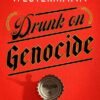
Drunk on Genocide; Alcohol and Mass Murder in Nazi Germany
By Edward B. Westermann. In Drunk on Genocide, Edward B. Westermann reveals how, over the course of the Third Reich, scenes involving alcohol consumption and revelry among the SS and police became a routine part of rituals of humiliation in the camps, ghettos, and killing fields of Eastern Europe. Westermann draws on a vast range…
Read more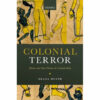
Colonial Terror: Torture and State Violence in Colonial India
By Deana Heath. Focusing on India between the early nineteenth century and the First World War, Colonial Terror explores the centrality of the torture of Indian bodies to the law-preserving violence of colonial rule and some of the ways in which extraordinary violence was embedded in the ordinary operation of colonial states. Although enacted largely…
Read more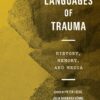
Languages of Trauma: History, Memory, and Media
Edited by Peter Leese, Julia Barbara Köhne, and Jason Crouthamel. This volume traces the distinct cultural languages in which individual and collective forms of trauma are expressed in diverse variations, including oral and written narratives, literature, comic strips, photography, theatre, and cinematic images. The central argument is that traumatic memories are frequently beyond the sphere…
Read more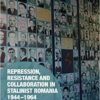
Repression, Resistance and Collaboration in Stalinist Romania 1944-1964: Post-Communist Remembering
By Monica Ciobanu. This book examines how the process of remembering Stalinist repression in Romania has shifted from individual, family, and group representations of lived and witnessed experiences characteristic of the 1990s to more recent and state-sponsored expressions of historical remembrance through their incorporation in official commemorations, propaganda sites, and restorative and compensatory measures. Based…
Read more
The Holocaust and Masculinities: Critical Inquiries into the Presence and Absence of Men
Edited by Björn Krondorfer and Ovidiu Creangă. In recent decades, scholarship has turned to the role of gender in the Holocaust, but rarely has it critically investigated the experiences of men as gendered beings. Beyond the clear observation that most perpetrators of murder were male, men were also victims, survivors, bystanders, beneficiaries, accomplices, and enablers; they negotiated…
Read more
It Can Happen Here: White Power and the Rising Threat of Genocide in the US
By Alexander Laban Hinton. If many people were shocked by Donald Trump’s 2016 election, many more were stunned when, months later, white supremacists took to the streets of Charlottesville, Virginia, chanting “Blood and Soil” and “Jews will not replace us!” Like Trump, the Charlottesville marchers were dismissed as aberrations—crazed extremists who did not represent the…
Read more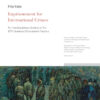
Imprisonment for International Crimes: An Interdisciplinary Analysis of the ICTY Sentence Enforcement Practice
By Filip Vojta. How criminal sentences are enforced is of fundamental concern for the legitimacy of any justice system. However, fairly little is known about the practice of enforcing the prison sentences imposed by the international criminal tribunals. This volume offers a unique interdisciplinary lens – including international criminal and human rights law, penology, (supranational)…
Read more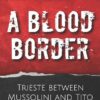
A Blood Border: Trieste between Mussolini and Tito
By Luisa Morettin. In May 1945 Trieste was the last battleground of WWII and the first of the Cold War. Some of the most terrifying episodes of that battle are linked to the Karst landscape of the region which is studded with foibe, deep cone-shaped pits excavated by water erosion. During Yugoslav partisan rule in…
Read more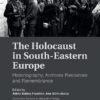
The Holocaust in South-Eastern Europe: Historiography, Archives Resources and Remembrance
Edited by Adina Babeș-Fruchter and Ana Bărbulescu. For many decades, the Holocaust in South-Eastern Europe lacked the required introspection, research and study, and most importantly, access to archives and documentation. Only in recent years and with the significant help of an emerging generation of local scholars, the Holocaust from this region became the focus of…
Read more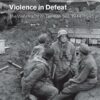
Violence in Defeat: The Wehrmacht on German Soil, 1944–1945
By Bastiaan Willems. In the final year of the Second World War, as bitter defensive fighting moved to German soil, a wave of intra-ethnic violence engulfed the country. Bastiaan Willems offers the first study into the impact and behaviour of the Wehrmacht on its own territory, focusing on the German units fighting in East Prussia…
Read more
